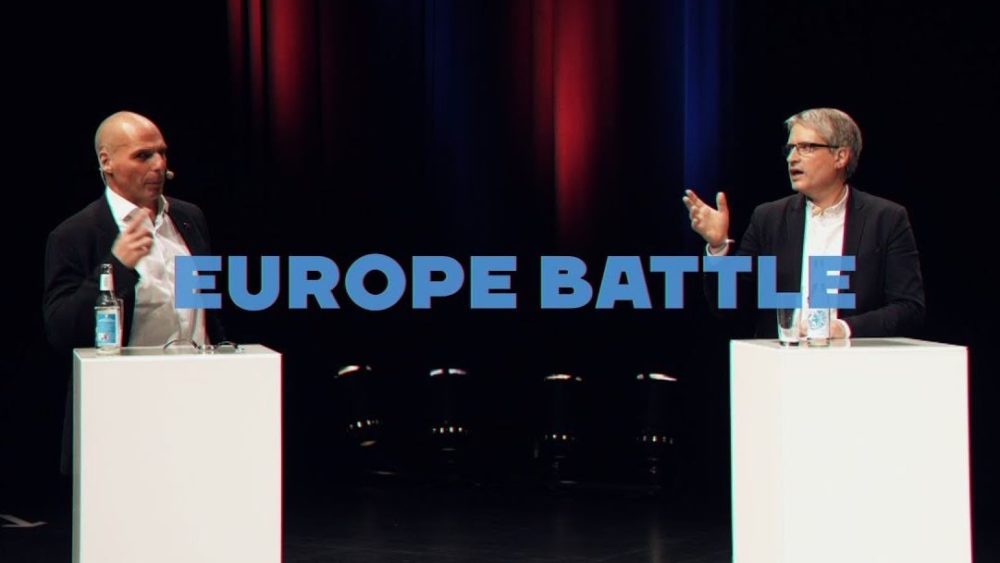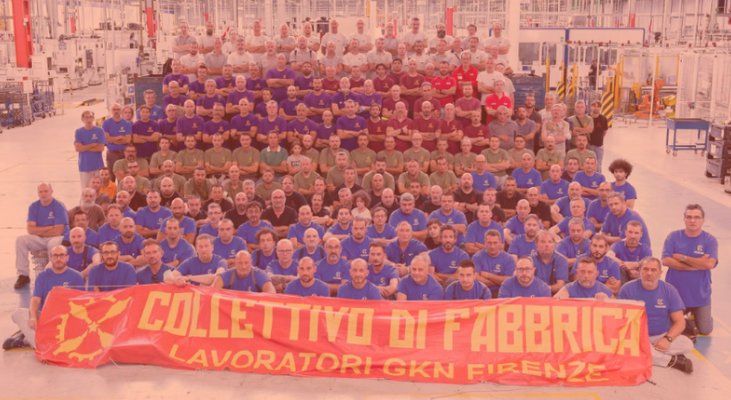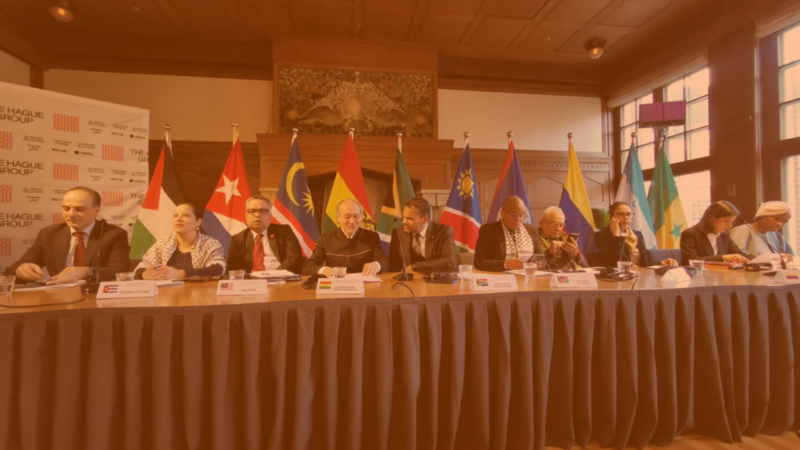In late April, DiEM25 founder Yanis Varoufakis participated in a debate with Sven Giegold, lead candidate of the German Greens. After two very close first rounds, Giegold used the third to attempt to nail his opponent on our Green New Deal. But Varoufakis had all the answers. Watch here or read a summary below.
The main difference between the Green Party’s proposal and DiEM25’s Green New Deal is the amount of the money involved and where it must come from. Sven Giegold pointed out that DiEM25’s Green New Deal is to be financed through green bonds issued by the European Investment Bank, and he argued that this idea was toxic in Germany. That is why for their part, the German Greens and the European Greens want to end the tax competition game and use the money from a common company taxation to finance the Green New Deal.
DiEM25 agrees that we should have a common company taxation in Europe, but explains why the money for the Green New Deal cannot come from taxation. The Fridays for Future are right to point the finger at us and say, “You are not doing enough”. So what is enough? What is the minimum we need for the green transition in energy, transport, industry and agriculture? 5% of the Eurozone GDP is the minimum, that is ca. 500 billion Euros per year. If we go down the taxation route, not only will it take years – time we don’t have – till every country agrees to collect a European tax, but even then this would raise no more than 50 billion Euros over a period of 3-5 years. Really not enough.
Right now there is around 2.5-3 trillion Euros in the financial circuits of the European Union that is doing nothing but harm: bidding up house prices, bidding up share values. DiEM25 suggests that the European Investment Bank should issue green bonds worth 500 billion every year and the ECB should make an announcement that if necessary it will buy up those bonds, if there is a need to prop up their price. By making that announcement, it will not have to buy them. Suddenly we will have 500 billion to invest in the green energy union, to stop countries from relying on lignite and to create good quality jobs all across Europe. And this is all within the rules and treaties of the EU.
Sven Giegold responded that he had asked progressive lawyers whether this was legal. They answered that when politicians pass a law committing the ECB to a 5-year buying program, it would be illegal under European law (because the ECB is nominally independent). Therefore, he believes it best to pursue economic programs that allow investments in the green transition to happen, but without creating a new financing program. He advocates instead for a policy that would make environmental destruction unprofitable and green investment profitable.
Yanis Varoufakis countered that DiEM25’s proposal is entirely legal. He didn’t ask any lawyer. He was a governor of the European Investment Bank (EIB) in 2015 and he put the proposal to the board of governors of the European Investment Bank, and not a single voice said that it was illegal. Indeed Werner Hoyer, the president of the EIB, was very much in favour of it! But they need the green light from the European Council. Varoufakis admits that Giegold is right that if there were a formal directive to the ECB to buy those bonds, then it would violate the fake posture of independence of the ECB. But the ECB is already buying those bonds! And Mario Draghi, Benoît Cœuré and everybody else would LOVE to have more EIB bonds to buy. They don’t have good quality green bonds to purchase and so have ended up buying rubbish bonds, even McDonalds bonds, Volkswagen diesel bonds, for lack of green bonds. They would love to buy green bonds, but so far there aren’t any.
Do you want to be informed of DiEM25's actions? Sign up here















